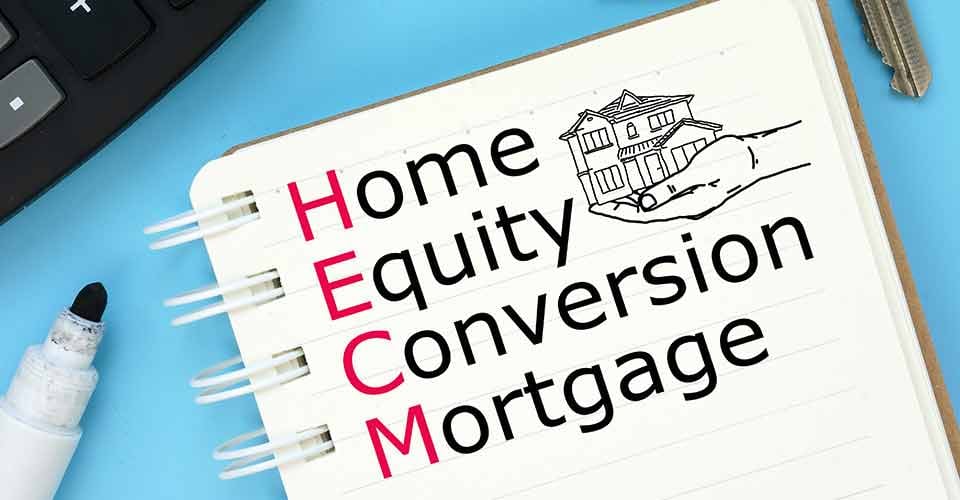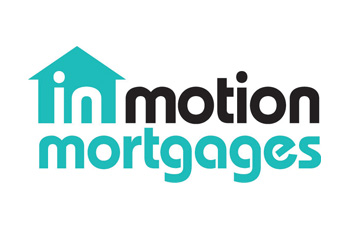A Comprehensive Guide to Selecting the Right Equity Release Mortgages for Your Requirements
Picking the right equity Release home mortgage is a substantial choice for many homeowners. It includes understanding various items and assessing personal financial demands. With options like lifetime home loans and home reversion plans, the course can appear facility. Key considerations consist of rate of interest and versatility. As individuals browse this landscape, evaluating prospective risks and advantages ends up being important. What variables should one prioritize to ensure the very best end result?
Recognizing Equity Release Mortgages
Equity Release home loans give an economic remedy for homeowners looking to access the worth secured their residential or commercial properties. Largely developed for people aged 55 and over, these mortgages permit them to transform component of their home equity into cash while proceeding to stay in their homes. Property owners can use these funds for different functions, such as supplementing retired life earnings, funding home renovations, or covering medical care expenses. The core concept behind equity Release is that the funding is paid off upon the home owner's death or when they relocate into long-lasting care, whereupon the property is generally offered to work out the financial debt. This method allows people to enjoy the benefits of their home's value without requiring to move. It is essential for prospective consumers to recognize the effects of equity Release, including potential influence on inheritance and recurring financial dedications, before making a decision.
Types of Equity Release Products
When discovering equity Release products, it is necessary to recognize the primary types available. Life time mortgages, home reversion systems, and drawdown strategies each offer one-of-a-kind attributes and benefits. Reviewing these options can help individuals in making enlightened financial decisions concerning their property.
Life Time Home Mortgages Explained
Lifetime mortgages represent among the most typical types of equity Release items offered to home owners in retirement. This kind of mortgage permits individuals to obtain against the worth of their home while keeping possession. Normally, the loan and interest accumulated are repaid when the house owner passes away or relocates right into long-term treatment. Consumers usually have the choice to pick between variable and set rates of interest, in addition to whether to make monthly settlements or let the rate of interest roll up. The quantity available to borrow generally relies on the homeowner's age and residential property value. This monetary option can give retirees with needed funds for numerous demands, consisting of home improvements or additional earnings, while permitting them to continue to be in their homes.
Home Reversion Schemes

Drawdown Plans Summary
Drawdown strategies represent an adaptable alternative within the spectrum of equity Release items, permitting property owners to access their building's value as required. These plans allow individuals to Release a section of their home equity incrementally, instead of getting a round figure upfront. This adaptability can be specifically valuable for taking care of funds over time, as borrowers just pay passion on the quantities they take out. Generally, drawdown plans include a pre-approved limitation, making certain that homeowners can access funds when necessary without reapplying. Additionally, this method can assist alleviate the influence of worsening passion, as much less cash is obtained originally. On the whole, drawdown strategies deal with those seeking economic versatility while preserving control over their equity Release journey.
Trick Variables to Think About
When selecting an equity Release home loan, several key variables call for careful factor to consider. Rates of interest comparison, the loan-to-value proportion, and the versatility of features supplied can greatly impact the viability of a product. Reviewing these elements will aid individuals make informed decisions that align with their economic goals.
Rate Of Interest Contrast
Navigating the landscape of equity Release home loans requires cautious factor to consider of rate of interest rates, which play an important duty in establishing the general price of the funding. Consumers ought to contrast variable and fixed prices, as dealt with rates use stability while variable rates can change based on market problems. Furthermore, the timing of the rates of interest lock-in can considerably impact the complete repayment amount. Prospective customers have to also examine the annual percentage rate (APR), which consists of different fees and expenses related to the home mortgage. Recognizing the implications of different rate of interest will certainly enable people to make enlightened choices tailored to their monetary situation. Inevitably, a comprehensive evaluation of these factors can cause more beneficial equity Release results.

Loan-to-Value Ratio
The loan-to-value (LTV) proportion offers as a vital statistics in the domain name of equity Release mortgages, affecting both qualification and borrowing ability. It is calculated by splitting the quantity of the car loan by the evaluated value of the residential property. Generally, a higher LTV proportion suggests a greater threat for loan providers, which can lead to more stringent loaning standards. Most equity Release items have details LTV limits, typically figured out by the age of the borrower and the value of the residential property. LTV proportions generally range from 20% to 60%, depending upon these variables. Understanding the ramifications of the LTV ratio is necessary for customers, as it directly impacts the amount they can access while ensuring they continue to be within safe loaning limits.
Adaptability and Features
Comprehending the flexibility and features of equity Release mortgages is important for consumers looking for to maximize their monetary alternatives. Different products provide varying levels of flexibility, such as the capacity to make partial repayments or the option to take a round figure versus routine withdrawals. Consumers should additionally take into consideration the mobility of the mortgage, which permits them to move it to a brand-new residential property if they determine to relocate. Extra functions like the ability to consist of relative or the option for a no-negative-equity guarantee can boost safety and security and satisfaction. Ultimately, reviewing these variables will assist consumers select a plan that aligns with their long-lasting personal conditions and economic objectives.
The Application Process
Just how does one navigate the application procedure for equity Release home mortgages? The journey starts with assessing eligibility, which commonly needs the applicant to be at the very least 55 years old and possess a considerable portion of their home. Next off, individuals need to gather needed paperwork, including evidence of home, revenue, and identification valuation.Once prepared, candidates can come close to a lender or broker focusing on equity Release. An economic consultant might additionally provide valuable advice, making certain that all options are considered. Following this, the applicant submits an official application, which includes a comprehensive assessment of their monetary circumstance and residential property details.The lending institution will then carry out an assessment, which might entail a home assessment and discussions concerning the candidate's requirements and circumstances. The process finishes with a formal deal, permitting the this article applicant to examine the Check This Out terms before making a final decision. Clear interaction and understanding at each step are necessary for a successful application.

Expenses and Charges Included
Countless expenses and charges are associated with equity Release home mortgages, and prospective consumers should be conscious of these economic factors to consider. Originally, there may be an application cost, which covers the loan provider's administration expenses (equity release mortgages). Additionally, appraisal fees are frequently needed to examine the property's well worth, and these can vary significantly based upon the building's size and location.Legal charges have to likewise be factored in, as borrowers will certainly need a lawyer to navigate the lawful aspects of the equity Release procedure. Additionally, some loan providers might enforce early payment costs if the home loan is settled within a certain term.It is necessary for borrowers to extensively assess all costs connected with an equity Release mortgage, as they can influence the general value of the equity being released. A clear understanding of these fees will certainly make it possible for people to make informed choices
Possible Threats and Advantages
Equity Release home loans feature a variety of prices and costs that can affect a customer's financial situation. They supply considerable advantages, such as access to funds without the need to sell the home, enabling debtors to make use of the money for retired life, home enhancements, or to sustain member of the family. Nevertheless, prospective threats exist, including the decrease of inheritance for beneficiaries, as the funding amount plus rate of interest have to be paid back upon the consumer's fatality or move right into long-lasting treatment. Additionally, the residential property's value may not value as expected, bring about a bigger financial obligation than anticipated. Customers may likewise encounter limitations on relocating or marketing the residential property. If equity Release straightens with their long-lasting financial objectives, it is necessary for people to carefully consider these threats against the benefits to identify. A comprehensive understanding of both aspects is crucial for making an educated choice.
Questions to Ask Prior To Dedicating
When considering an equity Release home mortgage, possible consumers should ask themselves several vital questions to ensure they are making an informed decision. They should first assess their financial circumstance, consisting of existing debts and future demands, to establish if equity Release is ideal. It is crucial to inquire about the overall expenses included, consisting of charges, rate of interest, and any kind of penalties for early payment. Consumers must additionally ask how equity Release will certainly influence inheritance, as it might reduce the estate left for beneficiaries. Recognizing the terms of the arrangement is necessary; therefore, questions relating to the adaptability of the strategy, such as the capacity to make settlements or take out extra funds, must be addressed. Possible debtors must take into consideration the reputation of the lending institution and whether independent monetary recommendations has actually been sought to ensure all facets are extensively recognized.
Often Asked Concerns
Can I Select Just How Much Equity to Release?
People can normally select just how much equity to Release from their building, however the quantity may be influenced by factors such as age, property value, and lender demands - equity release mortgages. Consulting with a monetary expert is advisable
What Takes Place if Home Values Decline?
If home you can look here worths decrease, the equity offered for Release lessens, potentially leading to a situation where the impressive home loan surpasses the residential property worth. This circumstance may limit financial alternatives and impact future planning for property owners.
Can I Still Move Home With Equity Release?
The capacity to relocate home with equity Release depends upon the specific terms of the equity Release plan. Commonly, lots of strategies enable homeowners to move their equity Release to a brand-new home, subject to authorization.
Exactly How Does Equity Release Impact My Inheritance?
Equity Release can substantially affect inheritance. By accessing home equity, the overall value of an estate might reduce, potentially decreasing what recipients get. It's vital for individuals to take right into account these effects when choosing equity Release options.
Are There Any Type Of Age Constraints for Applicants?
Age limitations for equity Release applicants commonly need individuals to be a minimum of 55 years old (equity release mortgages). Lenders may have added requirements, frequently thinking about the applicant's financial situation and the building's value throughout the analysis procedure
Verdict
In recap, selecting the right equity Release home loan requires mindful examination of individual monetary situations and goals. By understanding the numerous item types, vital aspects, and connected expenses, customers can make educated choices. Additionally, acknowledging potential dangers and advantages is vital for lasting monetary security. Looking for independent financial suggestions can better boost the decision-making procedure, guaranteeing that the selected equity Release remedy aligns with the home owner's general financial strategy and future aspirations. Equity Release home mortgages offer an economic solution for house owners looking to access the value secured in their homes. Comprehending the versatility and features of equity Release home mortgages is important for customers seeking to maximize their financial options. Some loan providers might impose very early payment fees if the home mortgage is paid off within a specific term.It is essential for customers to extensively assess all prices linked with an equity Release mortgage, as they can impact the total worth of the equity being launched. The capacity to relocate home with equity Release depends on the specific terms of the equity Release strategy. Looking for independent economic advice can even more improve the decision-making process, guaranteeing that the chosen equity Release solution lines up with the homeowner's overall financial technique and future goals.